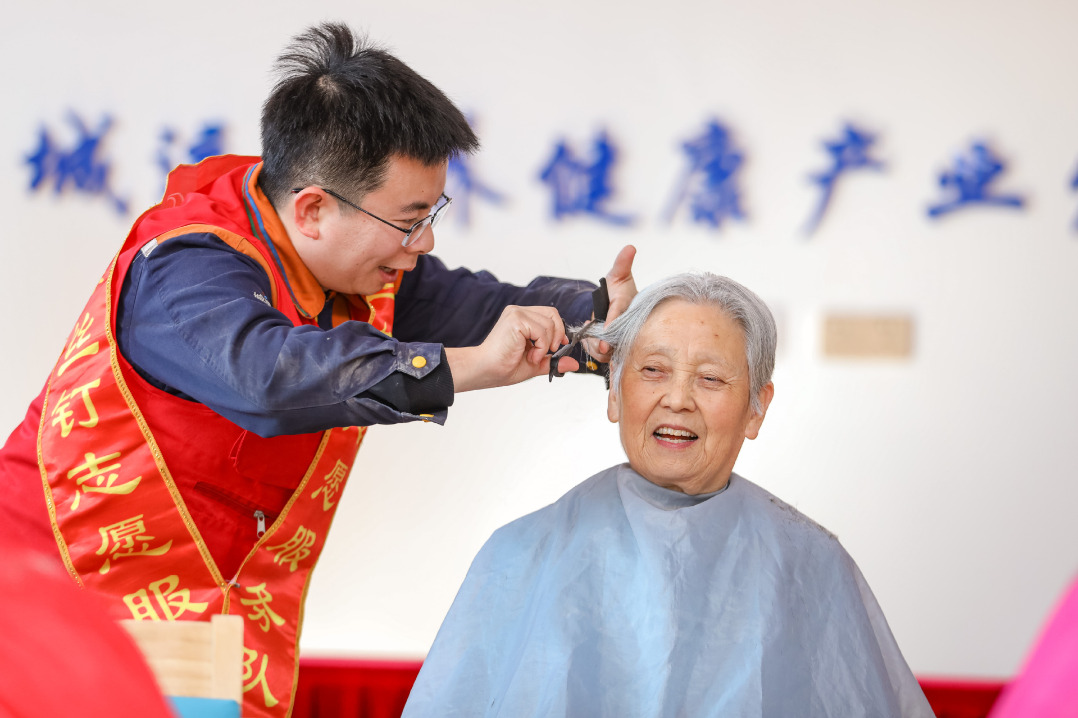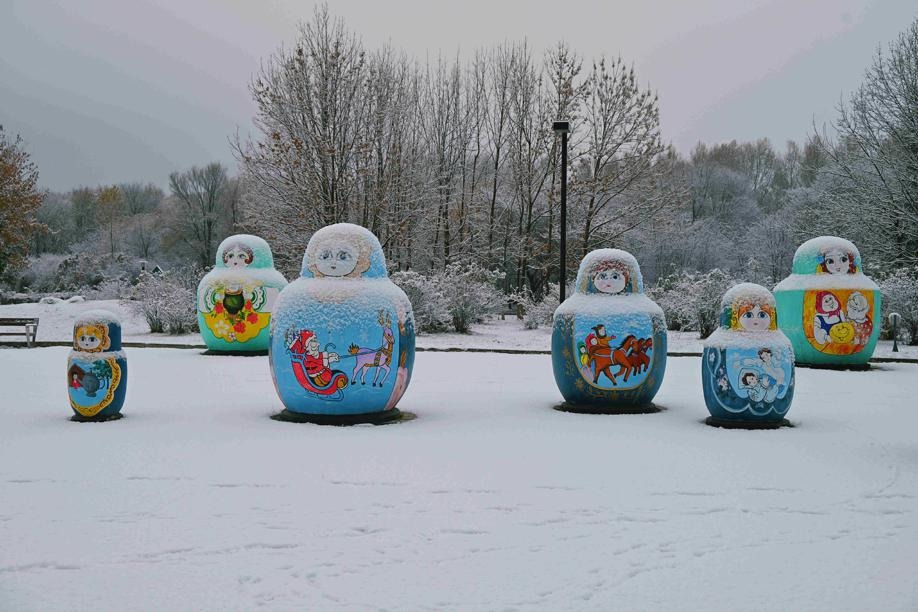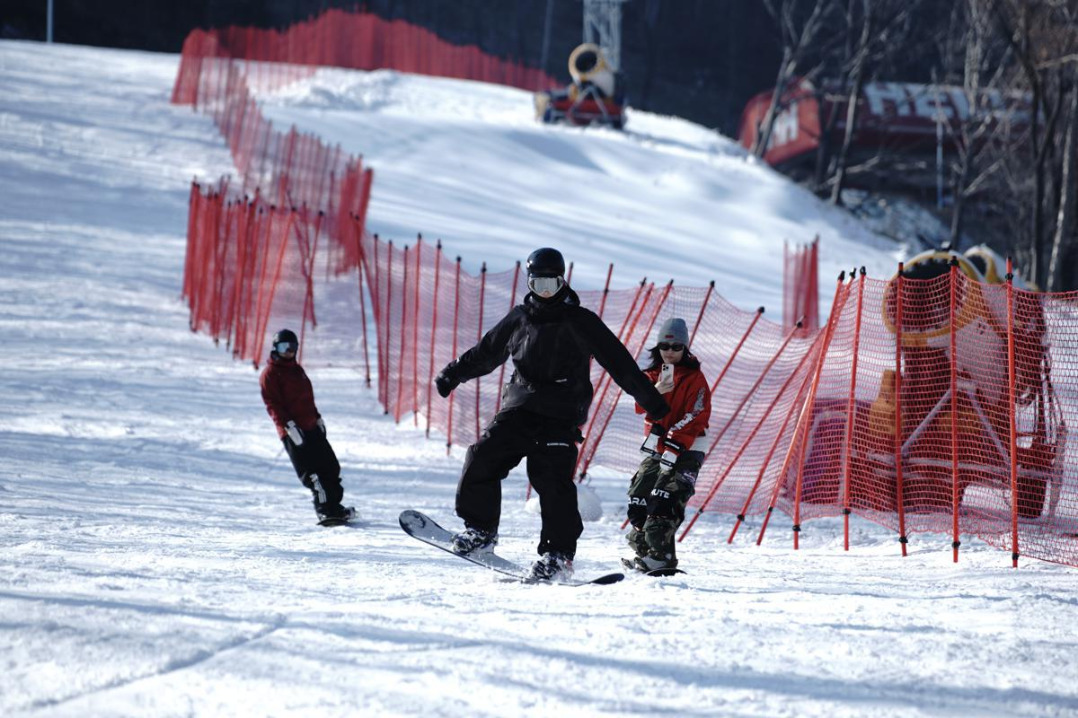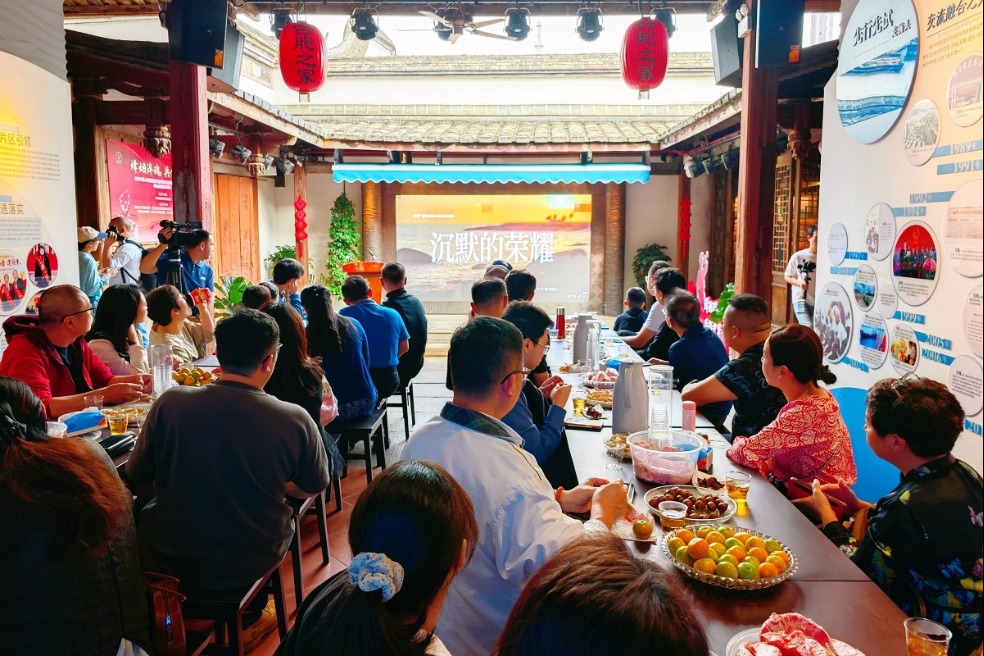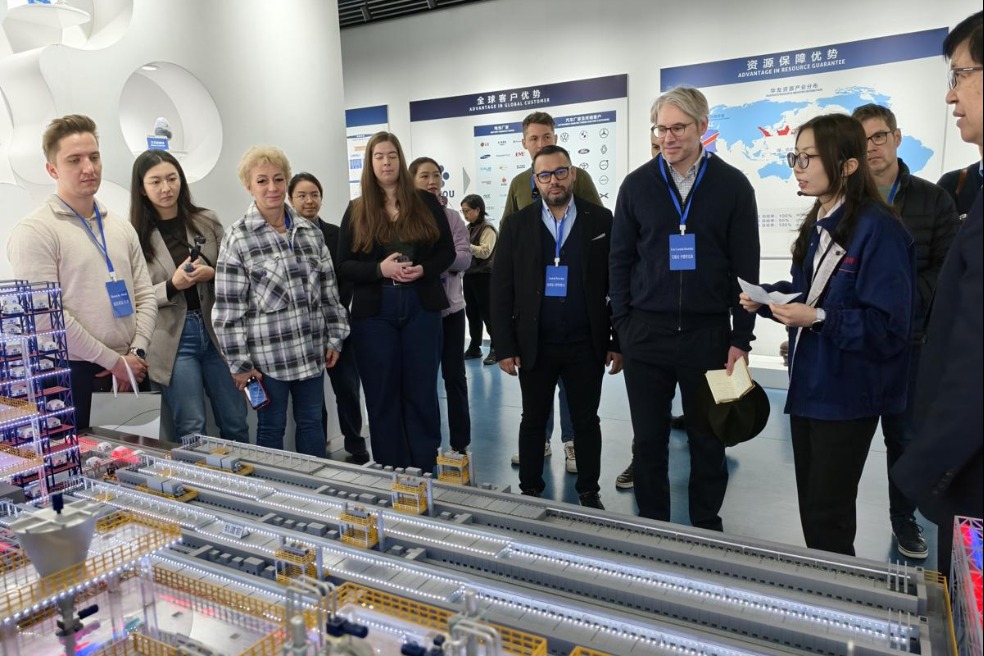Blind soprano completes Tianjin half-marathon with her escort team

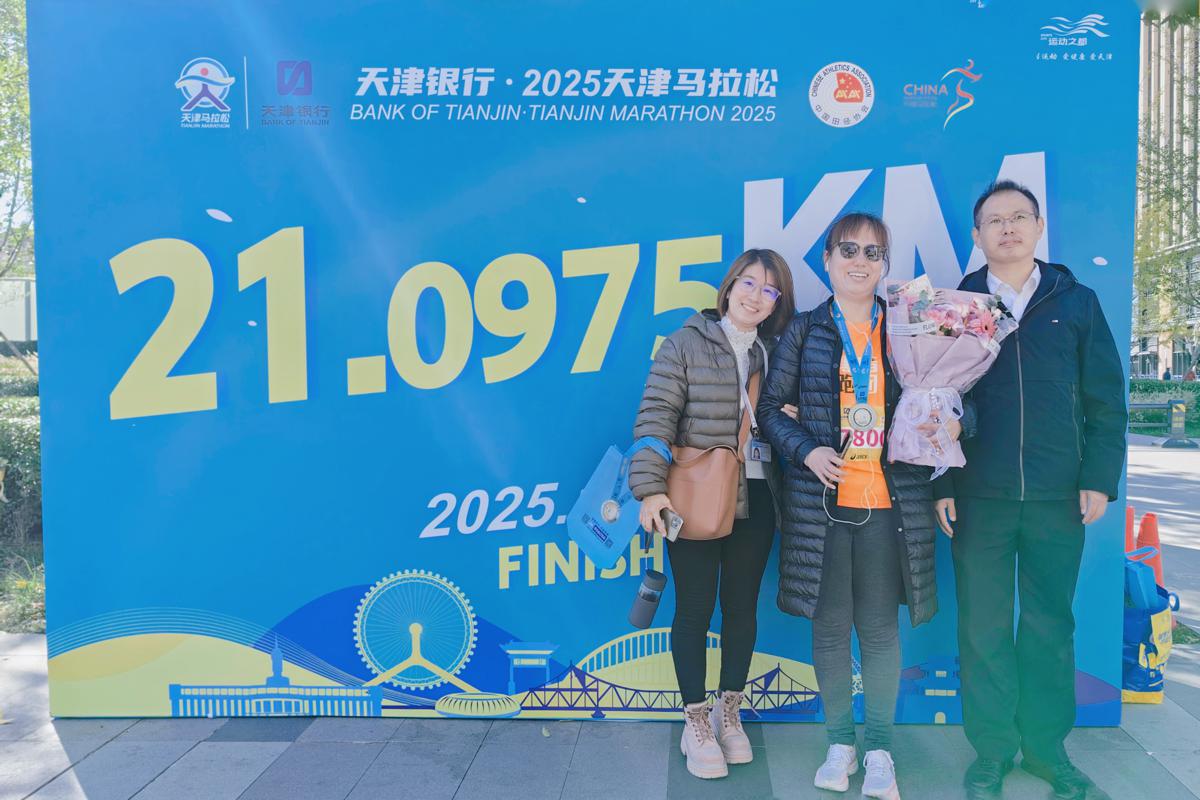
On the course of the Tianjin Marathon on Sunday, blind soprano Liu Baoping tightly gripped a guiding rope to complete the half-marathon, guided and protected by a seven-member escort team. Over 21 kilometers, they vividly demonstrated how trust and teamwork can transcend physical limitations.
According to the Chinese Athletics Association, participants with disabilities can register as long as they meet the physical requirements of the event. For instance, visually impaired runners must be accompanied by guides throughout the race to ensure safety and fairness.
Liu is one of the beneficiaries of this inclusive policy. Blind since infancy, she trained for a full year with the volunteer group known as the "Dark Running Team" in preparation for the marathon.
"The hardest part wasn't the blindness itself, but overcoming my own laziness and discomfort," Liu recalled. "It's tough to keep going, sweating in summer and freezing in winter." From gasping for air after just a few hundred meters to being able to complete a stable 10-kilometer training run every Saturday, Liu has made a remarkable transformation from a beginner to a confident half-marathon runner.
During her runs, in addition to relying on verbal cues from her guides, Liu adjusts her pace through body sensations and sound. "My body can sense speed, and even the sound of the wind gives me clues," she explained. "Sometimes, I feel a kind of resistance, like I might bump into the person in front, and that's when I ask them to go faster."
During the race, each member of the seven-person escort team had a clear role. Leading the group were Beijing runner "Mi Ge" and Shanghai runner "Jingling Jie" (both nicknames), responsible for clearing obstacles, setting directions, and managing supplies. To Liu's left front, Tang Liyun held the guiding rope and kept the rhythm; behind her right side, Liu Ling monitored the surroundings. At the rear, Zhao Zhiyue, a hearing-impaired runner, passed supplies forward, while Wei Wei and Lyu Li, also hearing-impaired, ran side by side, with Lyu Li playing music to lift the team's spirits.
"Everyone had qualified for the race but chose to give up their own results just to run with me," Liu said emotionally. "They joked that I was the 'team favorite'. Running in the middle felt like being escorted by royal guards — powerful and full of happiness."
Liu's journey is a powerful testament to the Dark Running Team's public welfare model, founded in 2016 to promote "sports without barriers, hearts without barriers" through guided running and hiking activities. As Wei Wei explained, the word "dark" refers to the visual world of blind people, while "running team" symbolizes moving forward together toward light.
The Tianjin chapter of the group recently celebrated its first anniversary. Every Saturday morning, it organizes a two-hour practice run at the city's Cultural Center. Participants must sign up in advance so that guides can be matched based on speed and stride frequency. Runners use a 30-centimeter guiding rope, held by both participants, to synchronize their arm swings. Guides usually run alongside the visually impaired runner, keeping an eye on both the runner's condition and the surrounding environment while giving real-time verbal cues.
This model has proved successful nationwide. The Chengdu chapter now has over 150 visually impaired members and more than 1,000 volunteers, while the Wuhan chapter, established just a year ago, has recorded nearly 3,700 participations.
"We're so fortunate to have a Tianjin branch," Wei Wei said. "It gives us a wonderful platform to run together with people who share the same passion."
Behind the seven-person collaboration on the course lies a broader support system. This year's Tianjin Marathon hosted 33,000 runners, up 30 percent from last year, supported by 5,900 volunteers, 10 supply stations, and medical staff stationed roughly every 300 meters.
"The course itself was very friendly," Liu noted. "There were no steps, only gentle slopes, so there were basically no obstacles for me."
This barrier-free philosophy is expanding beyond the race track and into the city itself. One month before the marathon, Tianjin held a special job fair for people with disabilities, where 43 companies offered 560 positions, resulting in over 150 preliminary employment agreements. In 2025, Tianjin plans to provide barrier-free home renovations for 3,800 families with severely disabled members. As of September, the city has already exceeded its target, completing upgrades for more than 4,300 households. The improvements include electric door locks and voice-control systems to support greater independence.
Huang Linyi contributed to this story.
- Police probe 'Taiwan independence' separatist Shen Pao-yang over suspected crime of secession
- Senior CPC official urges full promotion of Party plenum's guiding principles
- Chongyang Festival marked across China
- China's State Council appoints, removes officials
- Top political advisor calls for study, implementation of guiding principles of CPC plenum
- Chinese legislators urged to study, implement guiding principles of CPC plenum
















